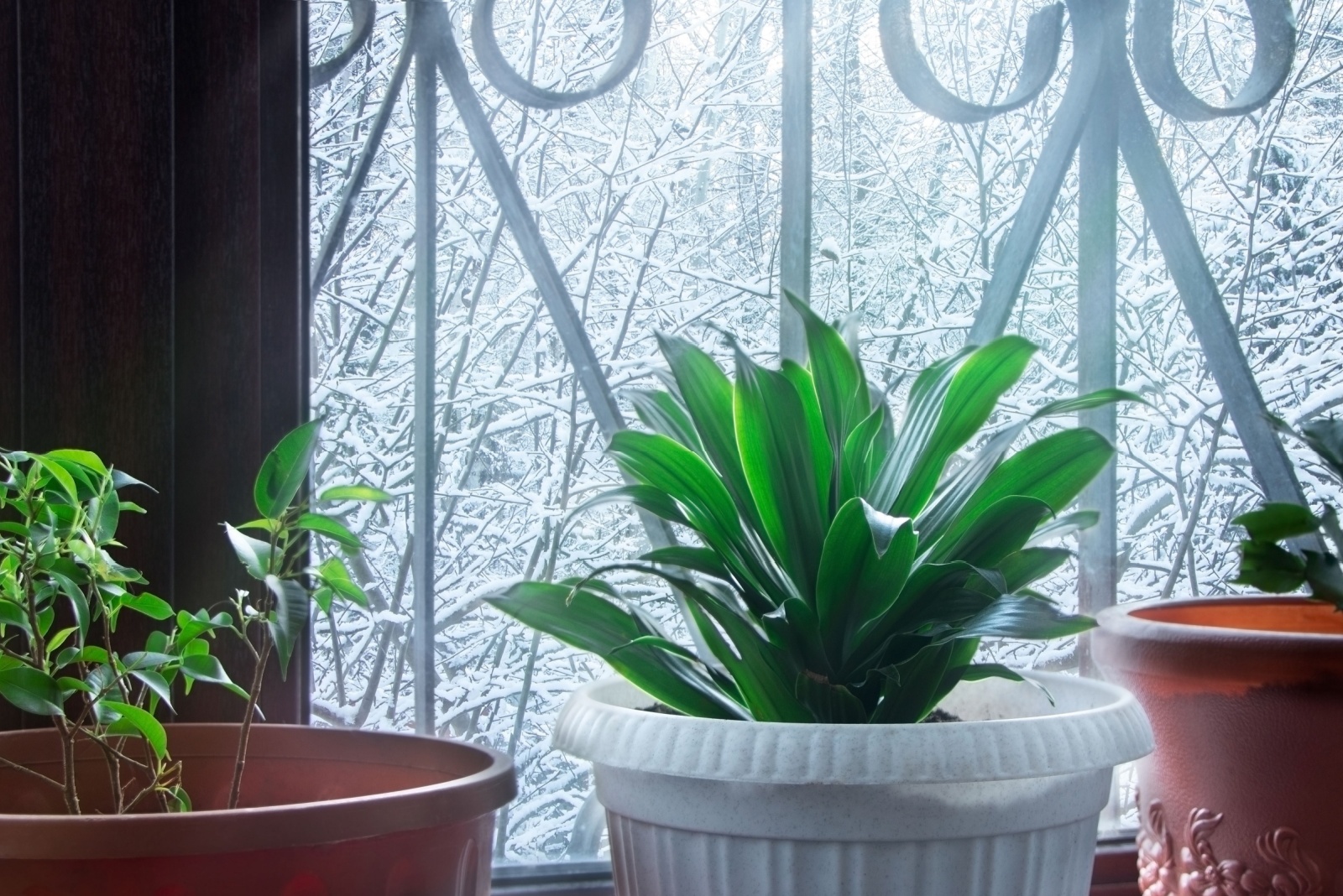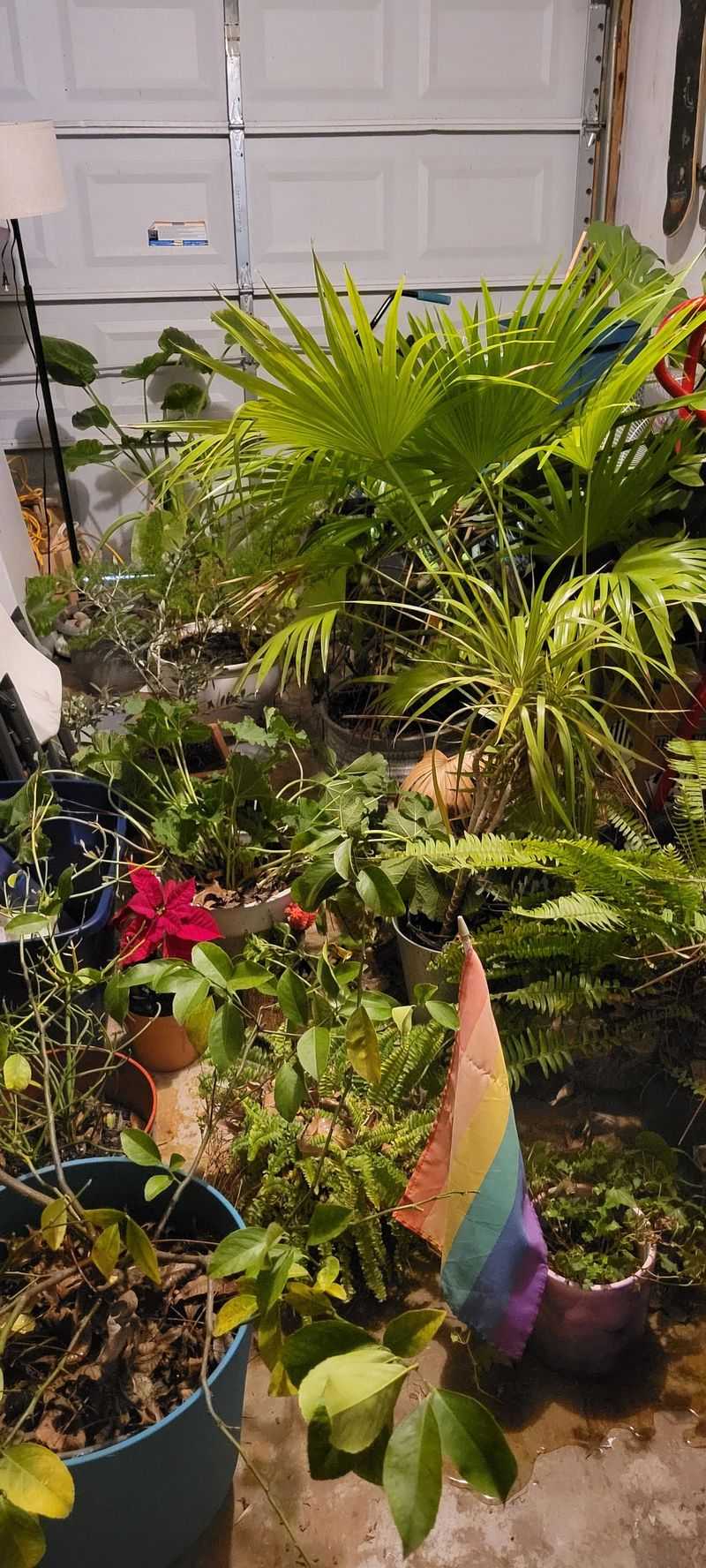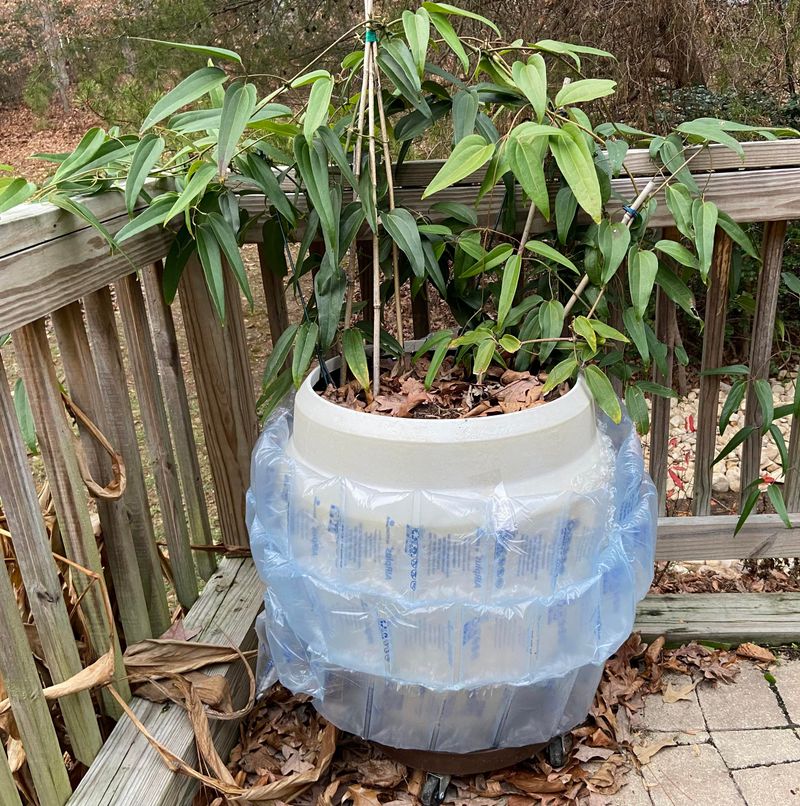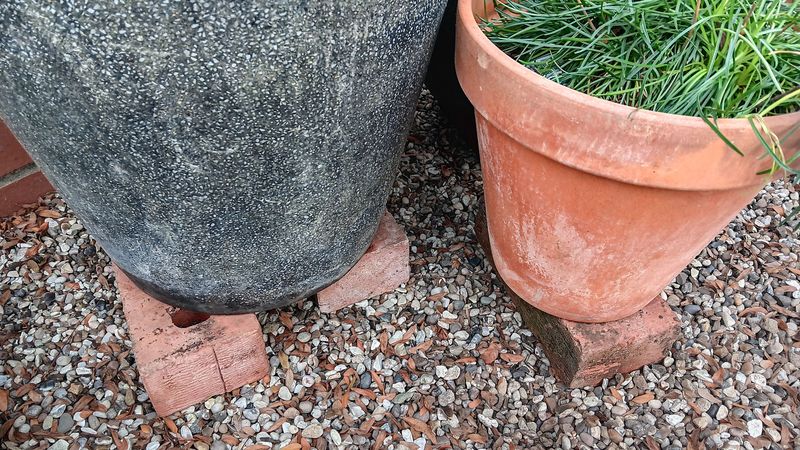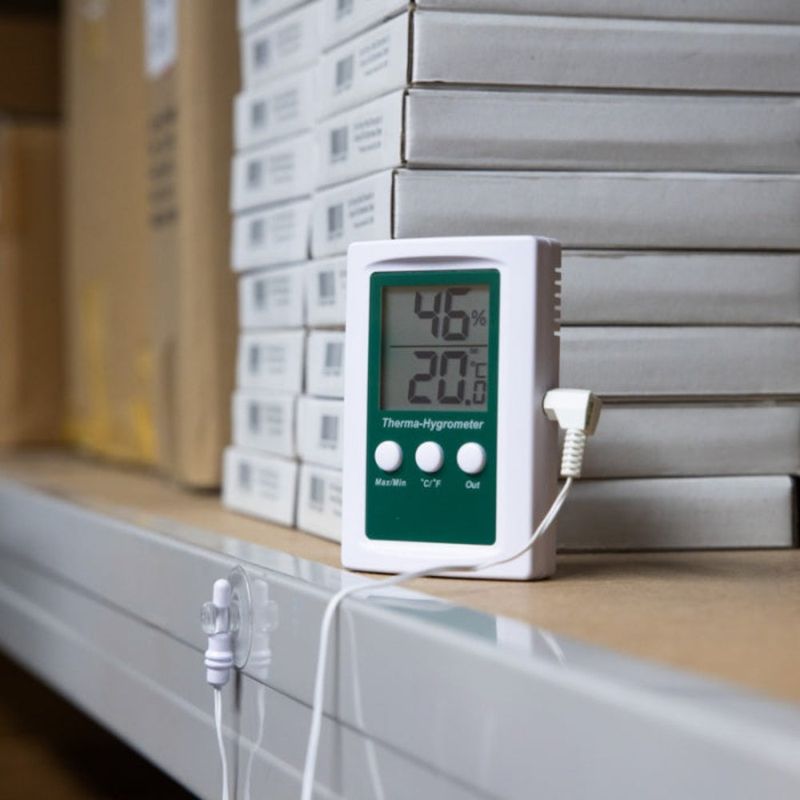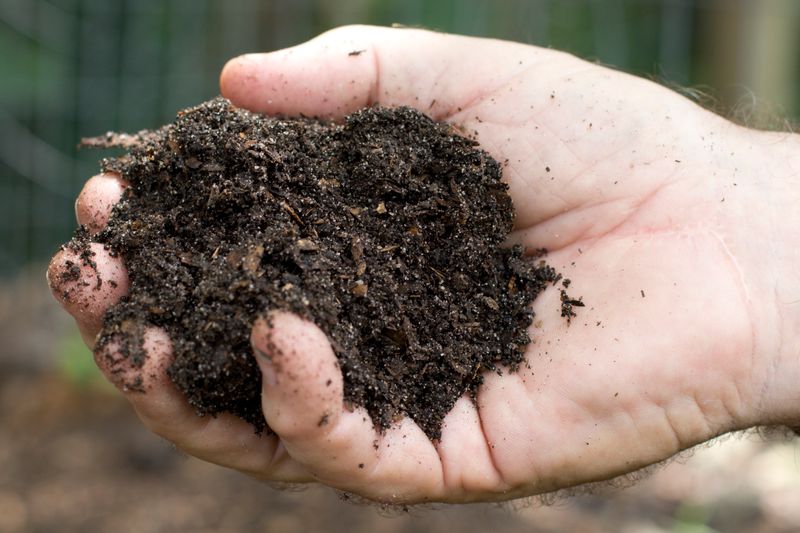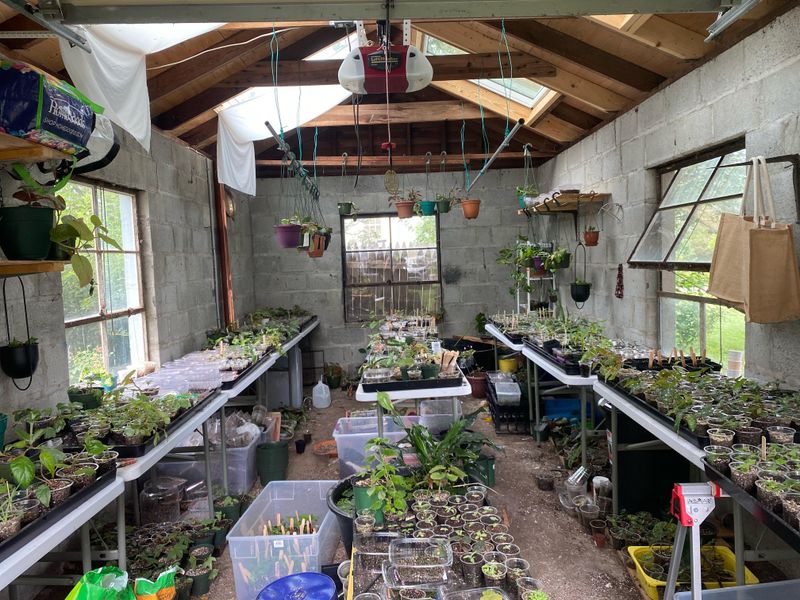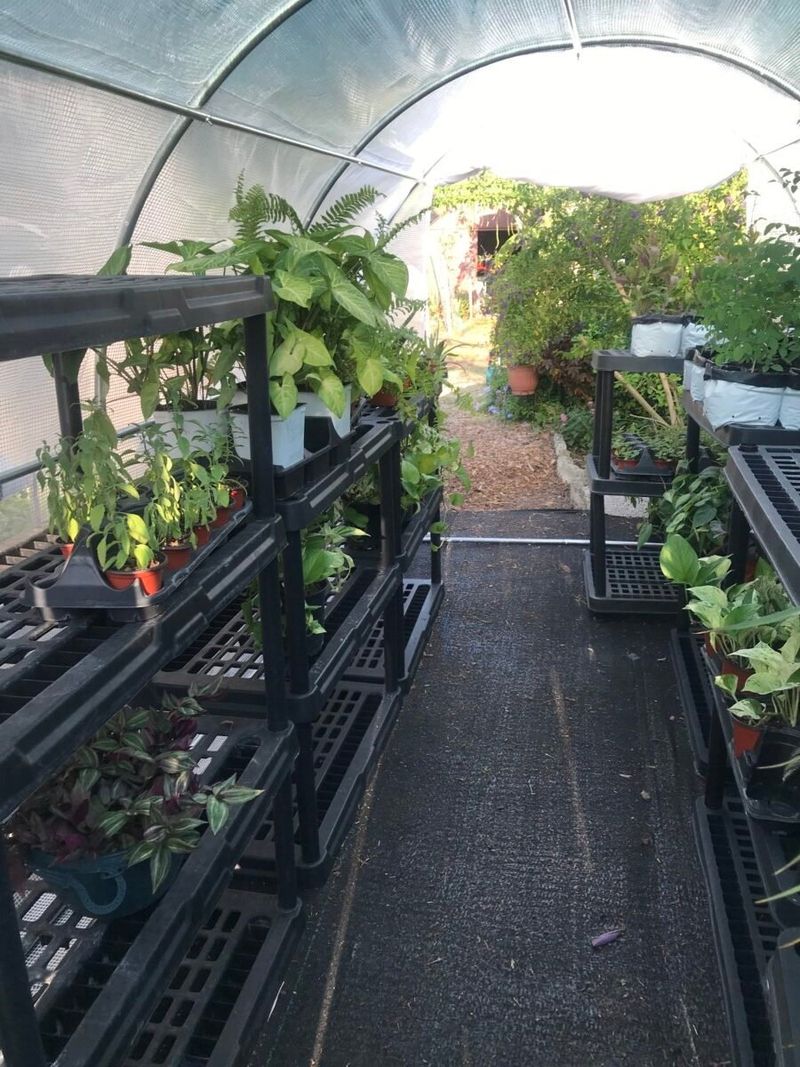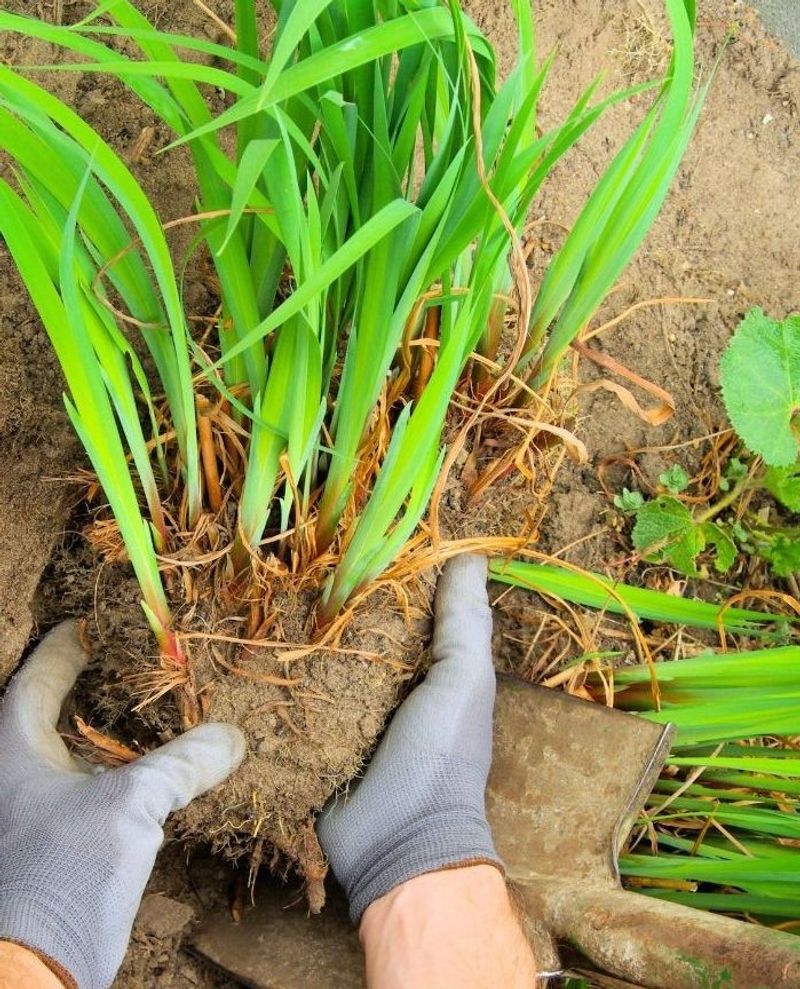When Pennsylvania temperatures start to drop, your potted plants need a safe place to wait out the cold months. Moving them into the garage can save them from frost damage, but you’ll need to do more than just set them inside and forget about them.
With the right preparation and care, your garage can become a perfect winter shelter where your plants stay healthy until spring returns.
1. Group Plants Together For Shared Warmth
Clustering your potted plants creates a microclimate that helps them retain moisture and warmth more effectively. When plants sit close together, they share humidity through transpiration, which keeps the air around them from getting too dry.
Pennsylvania winters can be harsh, so this simple trick makes a real difference. Place your most cold-sensitive plants in the center of the group where they’ll get the most protection from surrounding plants.
2. Wrap Pots In Bubble Wrap Or Burlap
Cold air can penetrate through pot walls and freeze the roots inside, which often causes more damage than frost on leaves. Wrapping your containers in insulating material creates a protective barrier that keeps root zones warmer.
Many Pennsylvania gardeners use old blankets, bubble wrap, or burlap because these materials are affordable and effective. Secure the wrapping with twine or tape, making sure the material covers the sides and bottom of each pot completely.
3. Elevate Containers Off The Cold Floor
Concrete garage floors get incredibly cold during Pennsylvania winters, and that chill transfers directly into your pots. Lifting containers even just a few inches off the ground helps prevent root damage from extreme cold.
You can use wood blocks, bricks, old crates, or plant stands to create space underneath each pot. This elevation also improves air circulation around the containers, which helps prevent mold and keeps soil from staying too wet throughout the dormant season.
4. Monitor Temperature With A Simple Thermometer
Your garage temperature can fluctuate wildly, especially when Pennsylvania experiences those sudden cold snaps. Placing a basic thermometer near your plants lets you know exactly what conditions they’re experiencing.
Most tender plants need temperatures to stay above freezing, while some tropicals prefer it even warmer. Check the thermometer regularly during cold spells, and be ready to add extra protection like blankets if temperatures drop too low overnight for your specific plant types.
5. Reduce Watering But Don’t Let Soil Dry Completely
Overwatering causes more problems than underwatering when plants are dormant in cold conditions. During winter storage, Pennsylvania gardeners should water only when the soil feels dry several inches down.
Roots still need some moisture to survive, but they’re not actively growing and can’t absorb much water. Check your plants every week or two by sticking your finger into the soil. If it feels completely dry, give just enough water to moisten the root zone without soaking it through.
6. Position Plants Near A Window For Natural Light
Even dormant plants benefit from some natural light during their garage stay. If your garage has a window, arrange your containers nearby so they can catch whatever sunlight filters through during short winter days.
This is especially important for evergreen plants and herbs that don’t go fully dormant. Pennsylvania’s cloudy winter weather means light is already limited, so make the most of what’s available. Just make sure the window area doesn’t get too cold at night when temperatures really plummet outside.
7. Use Old Blankets During Extreme Cold Snaps
When forecasts predict especially brutal nights, drape old sheets or blankets over your plant collection before bedtime. This extra layer traps heat and creates a cozy shelter that can raise temperatures by several degrees.
Pennsylvania gardeners know that some winter nights drop well below what even hardy plants can handle. Remove the covering in the morning so plants don’t stay too dark or stuffy. Keep a few dedicated blankets in the garage so they’re ready whenever you need them quickly.
8. Check For Pests Before Bringing Plants Inside
Before moving containers into your garage for winter, inspect every plant carefully for insects and disease. Pests like aphids, spider mites, and whiteflies can multiply quickly in the protected garage environment. Look under leaves, along stems, and around the soil surface for any signs of trouble.
Pennsylvania’s outdoor cold kills many pests naturally, but once they’re sheltered indoors, they thrive. Treat any problems before storage begins, and check your plants monthly throughout winter to catch issues before they spread to your entire collection.

